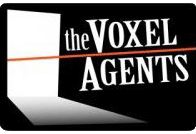Drop Bear Gaming recently had the pleasure of sitting down with Tom Killen of The Voxel Agents, the makers of the award winning Train Conductor series. Tom was one of the coordinating team behind the 2011 IGDA Melbourne Global Game Jam. We asked Tom a few questions about the event and what it takes to make one of the years most successful Jams.

Tom Killen is one of the co-founders of The Voxel Agents, creators of the hit iPhone game Train Conductor
Tom Killen: The Global Game Jam (GGJ) is an international event organised by the “International Game Developers Association” (IGDA). It’s an intense 48 hour challenge in which participants are tasked with creating a game in a very short window of time. The event is focused upon promoting innovation and upon creating cool and interesting games.
Counter-intuitively, the short time window actually removes the technological barrier involved in creating cool games. The technical challenge of creating a game still exists of course, but given such a short window of time, no one is going to try and make the next 3D shooter. Instead participants generally focus on interesting game mechanics rather than an impressive show of tech.
This means that the games created at the GGJ are gameplay focused. They are short puzzles, interesting ideas, prototypes. They are generally more similar to the games you’ll find on Kongregate rather than on XBox. Short, sharp, focussed experiences that rely on their strength of gameplay instead of dazzling their audience with technical or visual brilliance.
DBG: What involvement does the IGDA have in the event, and what are the main responsibilities of the organisation on the day?
TK: The IGDA provide the administrative backbone of the event, as well as mentoring and guiding the local organisers in their efforts to organise each individual event.
The IGDA announced the events theme (“Extinction”), organised the main communication channels such as the email threads, IRC chat channel, and other forums, and disseminated information and tips about how to organise the local events over these channels.
Additionally, most of the events world wide were organised by local IGDA chapters. For example, the La Trobe university jam was organised by IGDA Melbourne and the Sydney event was organised by IGDA Sydney.
 DBG: What does it take to organise such an event?
DBG: What does it take to organise such an event?
TK: A lot of work, generosity from third parties, and the fantastic involvement of the local games community.
La Trobe University were great in allowing us to use their venue to host the jam, and we were very generously supported by local developers Firemint (creators of Flight Control and Real Racing), and THQ provided prizes to the winners of the Jam. Without their support, it would have been much harder to bring everything together.
The main organisers of the event were Craig Peebles and Giselle Rosman who devote an enormous amount of time to the local community, and of course special thanks are owed to Paul Taylor for helping organise the venue and for looking after the tech requirements of the Jam.
DBG: What has been learnt from other years, and what were you looking to improve this year?
TK: This is the first year we’ve run the event down here in Melbourne, and it was a very impressive first showing with 18 games made and around 80 competitors.
We learned a lot from Brisbane’s 48 Hour Game Competition (which I’ve participated in over the past four years) and of course from when Sydney ran a GGJ event last year.
This year we strongly emphasised innovation in gameplay to encourage participants to think outside the box. We also placed great importance on limited scope – that participants should strive to create a small game rather than a big game. Most concepts can be proven with in a 2D context, and are just as fun to play as a large 3D world. Sometimes a 3D environment does make sense for gameplay, and indeed one of the more successful games made at our GGJ was in 3D, but it is sometimes very tempting to go for 3D when 2D would be just as if not more effective.








